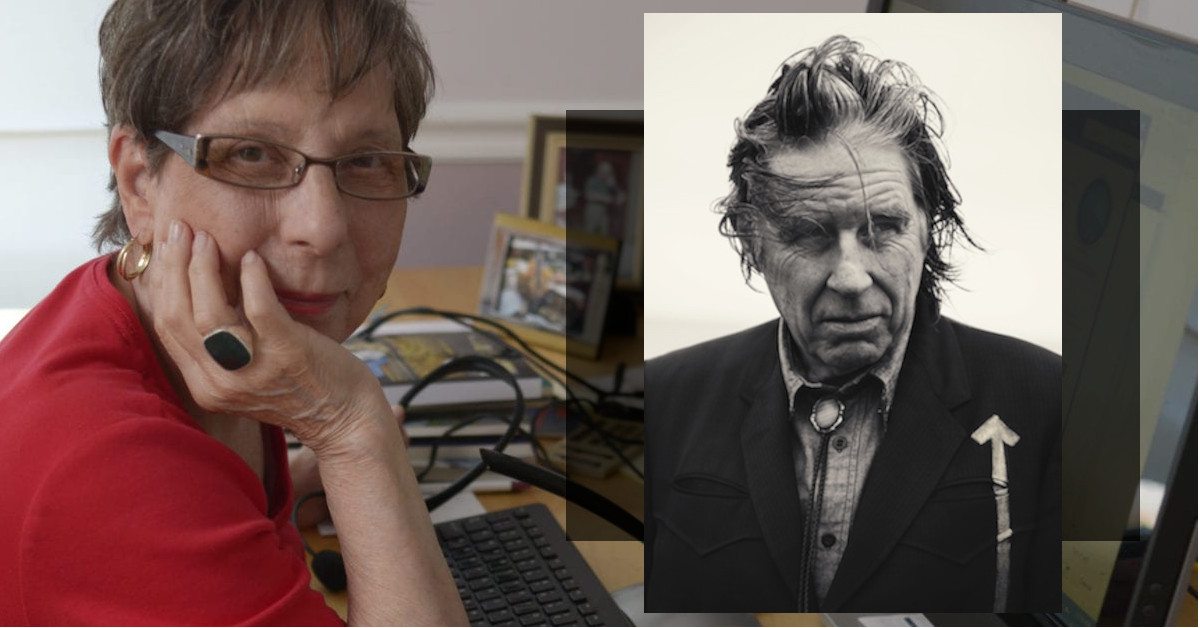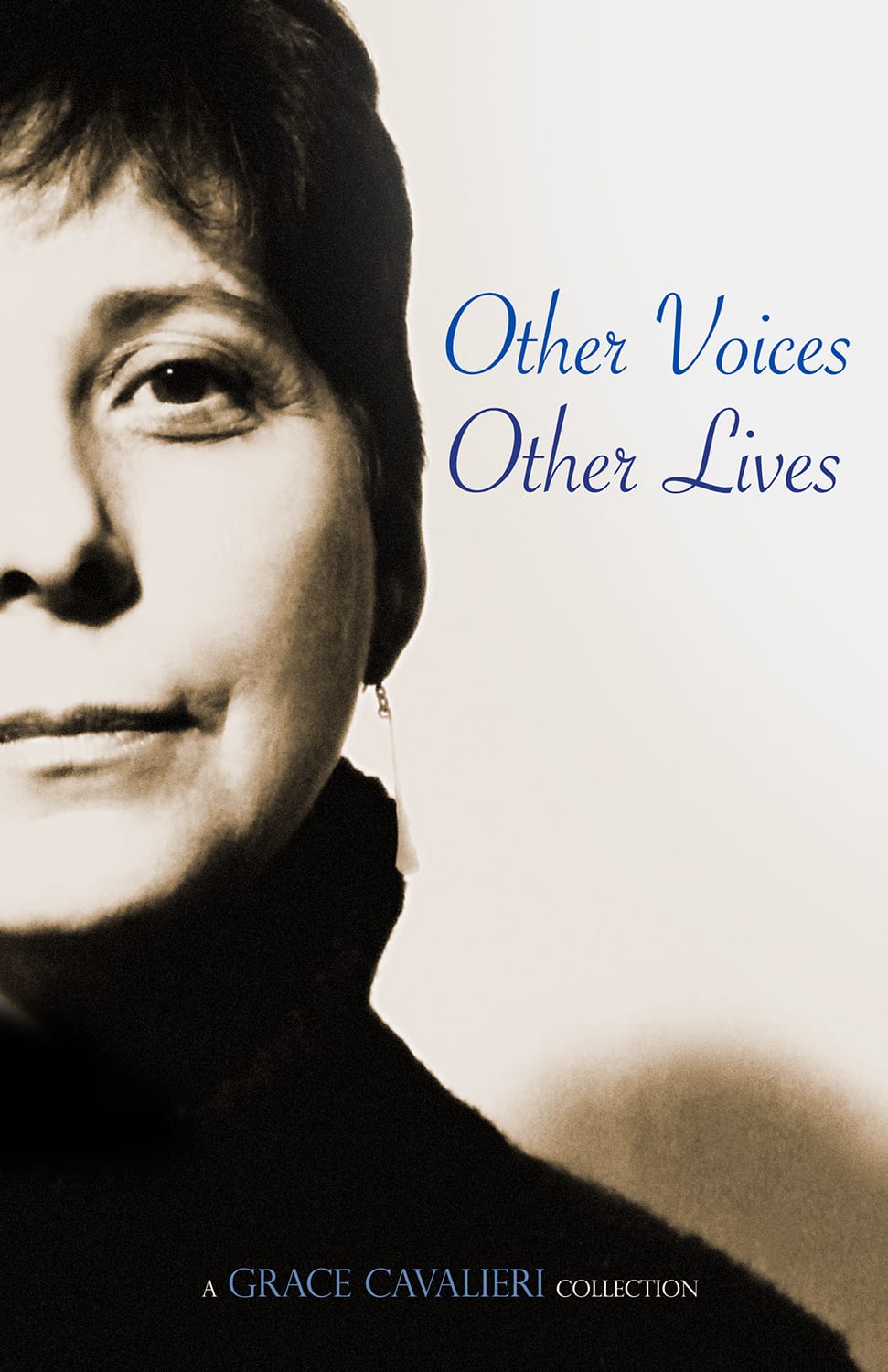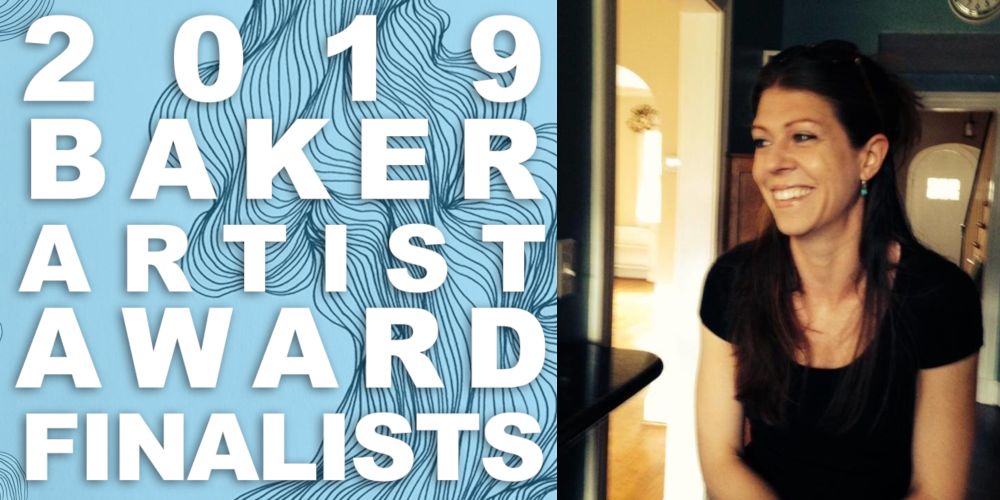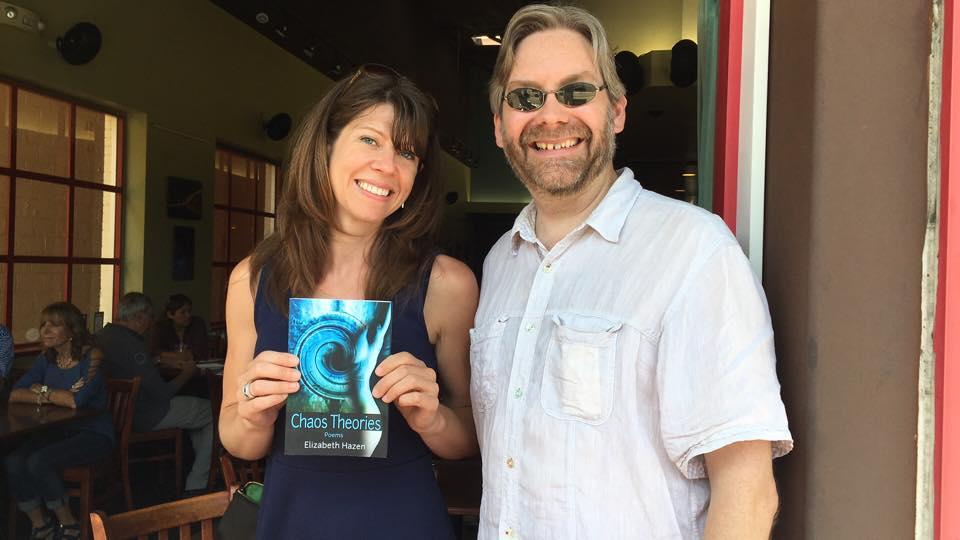John Doe of Band X Recalls his Time Studying Under Grace Cavalieri at Antioch
The punk-rocker, like so many others, discovered poetry through Grace Cavalieri. She offers some sound advice for aspiring readers.

John Doe, California punk-rocker of the band X shares a common trait with so many Maryland and D.C. poets: he discovered poetry through Grace Cavalieri. While Grace has introduced countless readers to poetry through her original work, it was in Grace's class at Antioch that Doe discovered the "current" poets whose vernacular was similar to his own. In an article from The Tampa Bay Times, Doe describes her method:
What she did was tell me, "Don't read anything that was written earlier than 1945 so you can be inspired by current poets that were alive and had a similar kind of vernacular, a similar way of talking in life." So when you do this, you don't have the hurdles, perhaps, of Shakespeare or Tennyson.
In his new book Under the Big Black Sun: A Personal History of L.A. Punk, Doe goes into more detail about his time studying under Grace and her influence on him and his music.
Grace's own poetic history can be found in the selected work Other Voices, Other Lives. OVOL features poetry both new and old, as well as selections from a number of Grace's plays, and even transcripts of her interviews with poets like Rita Dove. More about OVOL here.
Other Voices, Other Lives: A Grace Cavalieri Collection is a selection of poems, plays, and interviews drawn from over forty years of work by one of America’s most beloved and influential women of letters. The author of 23 books of poetry and 26 produced plays, and the founder of the legendary radio interview program, The Poet and the Poem, Grace Cavalieri has won multiple national awards for her writing and her service to literature. She currently resides in Annapolis, Maryland.
Fiddlin’ Around in Ireland
Nothing buoys the spirits like a walk along Grafton Street. Gray day or sunny, it’s bright with noise and laughter. Loud “hellos,” babies crying, neighborly gossip, rich brogues and lilting Irish airs float up onto the breeze. Our chosen course allowed for a stroll through St. Stephen’s Green. Sunlight dappled the leafy brakes. Inspired by the moment, Lawrence liberated his fiddle and sawed out a hornpipe. He was joined in his performance by a pair of amorous ducks.
On Grafton street we were immediately surrounded by music. A couple of 9 and 10-year-old boys, Donald Reagon and Paul O’Neill, were delighting passersby with smooth moves on the fiddle and concertina. College students with shaved heads played sitars. Old men played jazz. A guitarist somewhere was plucking out George Harrison tunes and singing, “Here comes the sun, little darlin’ here comes the sun.”
On that musical street there was only one poet—a threadbare character who, for a pound or a punt (Irish pound) or nothing at all, would recite a poem by a poet of one’s choosing. I selected Yeats and was honored with “The Fiddler of Dooney”:
“When I play on my fiddle in Dooney, Folk dance like a wave of the sea . . .”
An Interview with Elizabeth Hazen, Baltimore Poet and Baker Award Finalist
Baltimore poet, Elizabeth Hazen’s first collection of poems is entitled Chaos Theories. Last week the young poet was announced as a finalists for the prestigious Baker Artist Award in literature. We sat down to talk with her about her experience in Baltimore as an artist and what programs like The Baker Awards mean to artists.
Elizabeth Hazen Announced as a Finalist for the 2019 Baker Award
This year, ASP’s own Elizabeth Hazen, author of the poetry collection Chaos Theories, is a finalist for the $10,000 literary honor. Hazen is a Baltimore resident and ardent supporter of the city’s burgeoning arts scene (named by Thrillist and Departures magazines as one of the best arts cities in America). She received her MFA from Johns Hopkins University and currently teaches English at the Calvert School in Baltimore.


